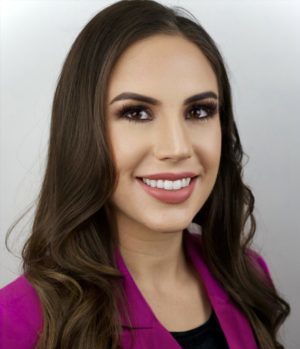How we won an H-1B visa petition for six Filipinos to work as medical technologists in the United States.
Background
The Trump Administration’s “Buy American and Hire American” executive order placed immense scrutiny under H-1B visa applications, which allow U.S. employers to hire foreign workers for specialty jobs. Thankfully, since the Biden Administration took over, there has been a 98% approval rate, compared to 84% in previous years.
As the country’s largest temporary nonimmigrant worker visa program, H-1B visas benefit the U.S. tech industry in sectors including science, finance and health care. They are typically granted through an employer-driven system, meaning employers petition to the government for visas tied to specific roles.
The U.S. Bureau of Labor Statistics reported in 2021 that employment of medical laboratory professionals is projected to grow 11% from 2020 to 2030. This is faster than the average of all occupations, yet there are not enough professionals to meet this demand. So, when an Iowa hospital approached us to help them employ six medical technologists from the Philippines at one of their regional hospitals in Iowa, we knew we had the expertise and resources to successfully petition for H-1B visas for Foreign Medical Technologists.
Alexandra Vasquez Sarrine, Senior Associate Attorney and Lead Attorney for Garvish Immigration Law Group, handled the case for this Iowa hospital.
H-1B Visa Application Challenges
H-1B visa requirements can be challenging to meet for several reasons. Firstly, the U.S. only grants 65,000 H-1B visas every fiscal year, with an additional 20,000 for applicants who have a master’s degree from U.S. universities. This cap can change at any time based on regulations set by the United States Citizenship and Immigration Services (USCIS).
Secondly, the various countries of origination may pose differing rules and regulations on its citizens who seek to emigrate. For instance, the Philippine Overseas Labor Office (POLO) has strict exit requirements. A worker cannot leave the country without an Overseas Employment Certificate (OEC). Equipped with this knowledge, we began the H-1B visa application process.
Part One: H-1B Visa Requirements & Process in the USA
A company that applies for an H-1B visa for a prospective employee must at a minimum demonstrate that the position is a specialty occupation. Furthermore, companies have to attest they will compensate foreign workers the same as their American counterparts to avoid cheap labor exploitation that adversely affects the U.S.’s labor force.
We filed an H1-B visa petition for each applicant with the USCIS. Once approved, we scheduled individual interviews with the U.S. Embassy in Manila, after which they were successfully issued H1-B visas.
Part Two: POLO Requirements & Process in the Philippines
The next step entailed meeting POLO exit requirements. Each applicant had to register as an Overseas Filipino Worker (WFO) with the Philippines Overseas Employment Administration (POEA) to work in the United States. Our client collaborated with Certified Health Partners, LLC and worked with Giovanni Manuel L. Silva, MD, MHA, MLS (Founder) and Carol R. Silva, MD, MHA, MLS (Managed Partner) who helped the applicants navigate this administrative process and achieve clearance from the Philippine government.
A Collaborative Success
Due to the committed efforts of all parties involved, our client was successfully able to fill urgent medical technologist vacancies at their Iowa hospital. Now they have the professionals they need to provide high-quality healthcare to the community they serve.
Encouragingly, there is an increase in the number of specialty occupation H-1B visas that are approved by the United States. This is why hiring an experienced Atlanta Business Immigration Lawyer vastly boosts chances of success because they avoid potential pitfalls that may lead to denial and save companies time, money and stress, plus prevent delays that interrupt a business’s operations. An experienced business immigration lawyer will ensure an application complies with government regulations and is adjudicated properly by authorities and if it isn’t, will aggressively advocate on behalf of their client if needed.
While we were able to comply with U.S. law without major setbacks, it’s crucial to acknowledge these processes entail compliance with an employee’s home country. Language barriers and a lack of legal experience and acumen regarding processes for both countries may complicate an already complicated H1-B visa application process.
Experienced Health Systems Business Immigration Attorneys
The legal team at Garvish Immigration Law Group has the knowledge and experience to help hospitals, universities and health care systems with their foreign workforce needs.
Based in Atlanta, we assist healthcare systems nationwide with their employment-based immigration needs. We help secure temporary employment visas and permanent residence for healthcare professionals including:
- H-1B visas
Available for up to six years for employees with university degrees or foreign equivalent - O-1 visas
For up to six years, visas for foreign national employees possessing extraordinary ability in their field - J-1 or H-3 visas
Available for up to 18 months of career training
Contact us today to schedule your initial consultation with an experienced healthcare immigration lawyer. Call us at 1.800.951.4980 to discuss how we can help you achieve your business immigration goals.
“Your Trusted Guide to the American Dream”




